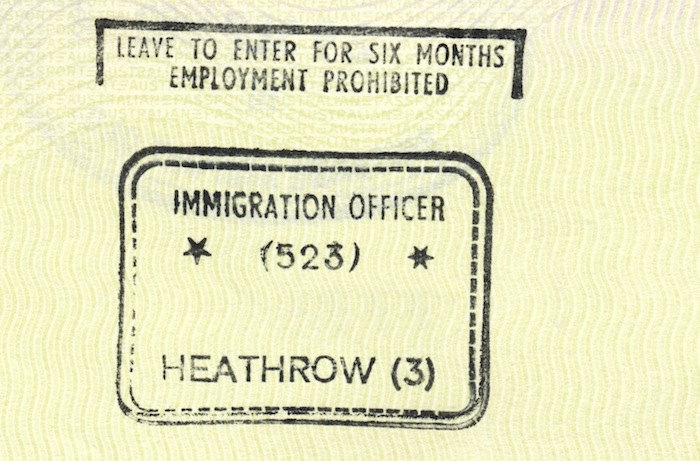[contextly_auto_sidebar id=”8IZtXYqUwgNQf5ml1uCWovWgk6naB0Wx”]
 A group of Lithuanian migrants who were trafficked to work in farms producing eggs for high street brands are suing a Kent-based gangmaster operation and its directors, in what is believed to be the first case of a UK company being taken to court for claims relating to modern slavery.
A group of Lithuanian migrants who were trafficked to work in farms producing eggs for high street brands are suing a Kent-based gangmaster operation and its directors, in what is believed to be the first case of a UK company being taken to court for claims relating to modern slavery.
- Matt Evans is the director of the AIRE Centre which has been involved in a number of cases before the ECHR around forced labour and trafficking, including Rantsev v Cyprus and Russia, and two cases involving the UK, Kawagoo v UK, and CN v UK
The first and only trafficking case to reach the Supreme Court (Allen v Hounga [2014] UKSC 47) demonstrated the difficulties faced by victims in bringing a claim against their traffickers. Even though the claimant was ultimately successful on her appeal in relation to the discrimination she suffered following her dismissal by her exploiters, the case is narrowly drawn and does not provide a general guarantee of compensation to victims in a range of different circumstances.
The remedies that exist in theory for victims of trafficking include:
- Civil claims against traffickers;
- Civil claims against public authorities for failing to discharge duties owed to victims;
- Employment tribunal claims;
- The Criminal Injuries Compensation Authority (CICA) scheme.
Despite the recommendations of the Joint Committee on the Modern Slavery Bill, there is still no provision in UK law for compensation for trafficking per se. This lack of a comprehensive law governing civil remedies for victims of trafficking potentially breaches the UK’s trafficking obligations, including:
- The need to ‘to protect the human rights of the victims of trafficking, design a comprehensive framework for the protection and assistance of victims and witnesses, while guaranteeing gender equality, as well as to ensure effective investigation and prosecution’ (Council of Europe Convention on Action against Trafficking in Human Beings (ECAT) Art 1(b)).
- The need to ensure that victims are compensated and are able to obtain practical and effective remedies (such as Article 17 of EU Directive 2011/36, Article 12 Trafficking Directive; and other international legal conventions).
- The need to afford practical and effective protection – and an effective remedy – against trafficking, forced labour, exploitation (Article 4 ECHR or Article 5(3) Charter of Fundamental Rights of the European Union). This requires a judicial remedy (Z v United Kingdom) and for that remedy to be deemed effective, legal aid (Elinc v Turkey)
Trafficking victims in the UK also face a number of legal and practical obstacles to bringing a claim for damages.
Civil claims against traffickers in the county court or high court for an actionable tort, including false imprisonment, harassment, assault, battery, and intimidation face jurisdictional and procedural issues where certain acts might have taken place outside of the UK, or where a defendant has fled abroad. It may also be difficult to identify those involved, given the nature of trafficking invariably involves different individuals operating at different levels, within fragmented structures, and in various roles. Whilst damages may be available for psychiatric injury, they are not likely to be available for distress, something highly relevant to such cases. Similarly evidence of physical injury may be difficult to prove because of the passage of time.
The potential problems faced by someone wanting to bring a claim against public authorities and in respect of any failures on their part, are illustrated by the fact that, for instance, there is a long-standing legal principle that the police cannot be sued for negligence because they have a special position in public service and under the law (an immunity recently upheld by the Supreme Court in Michael and others v The Chief Constable of South Wales Police). Additionally damages claim for human rights breaches by public authorities are significantly lower than that available under the law of tort.
During the passage of the Modern Slavery Bill the government introduced a restriction on the ability of victims to recover the national minimum wage. Trafficking victims who bring a claim in an Employment Tribunal as victims of domestic servitude or forced labour are therefore now, since July 2014 and the Deduction from Wages (Limitation) Regulations 2014, prevented from obtaining any more than two years in national minimum wage owed. This new restriction will only affect those who are not paid the national minimum wage (or not paid at all) for more than two years. Its likely impact will therefore overwhelmingly be on victims of modern slavery; since by definition someone who has worked without pay for over two years is very likely to be a victim of modern slavery. Traffickers and other ‘employers’ will also seek to rely on the ‘family worker exemption’ as a possible litigation tool to defeat a compensation claim in the Employment Tribunal. The exemption disentitles the worker not only to payment of the national minimum wage, but to any payment at all. In the leading case on overseas domestic workers and the minimum wage (Nambalat v Taher & Anor: Udin v Pasha & Ors) the Court of Appeal found that a worker who worked 14 hours a day and slept on a mattress on the dining room floor was treated as a ‘member of the family’, thereby bringing her within the ‘family worker exemption’ to the national minimum wage.
In the Criminal Injuries Compensation Scheme (CICA), criminal injury as defined in the scheme means the injury must be a crime of violence. This definition will exclude a great proportion of forced labour victims from obtaining compensation under the scheme, given the more subtle means by which many of the victims are recruited and controlled in such circumstances. The statutory CICA scheme also has fixed awards.
Inevitably funding obstacles also loom large in preventing trafficking victims from seeking redress. The Legal Aid Sentencing and Punishment of Offenders Act 2012 (LASPO) expressly provided for victims of trafficking to obtain legal aid for trafficking compensation claims, however the Legal Aid Agency has made no effective provision for this. The Agency’s 2013 Standard Civil Contract for instance limits the number of cases that can be taken by any provider to 5 per year, thereby inhibiting the development of expertise amongst providers. Despite the National Crime Agency accepting that thousands of trafficking victims are exploited in the UK each year (here) there are very few legal service providers with experience of representing victims of trafficking in compensation claims.
Finally there are various practical obstacles. These include the fact that enforcing any judgment debt is likely to be the exception not the rule. Even if a claimant successfully establishes liability, and even if he or she is able to quantify loss, difficulties of enforcement may prevent the litigant from achieving any restitution or just satisfaction. The proceeds of crime will, in many cases, have been transferred to third parties or removed from the jurisdiction. Any traceable assets may have already been confiscated by the Crown as part of criminal proceedings. Even though it is possible to seek to enforce judgment against a third party it will still often be difficult to prove that the third party is holding assets belonging to the judgment debtor; and the third party must be within the jurisdiction for the third party debt order to be issued.
So what is the solution? Certainly one answer might be to introduce a single streamlined tort of trafficking. Although the devil would be in the detail, a single tort has the potential to reduce legal costs by creating a more straightforward and streamlined procedure, reducing difficulties, and benefitting both the victim and public purse, in terms of legal aid and litigation costs, and resources. It would allow lawyers and judges to get straight to the core and merits of the argument quicker and, at the pre-action stage, may help clarify the issues with a view to a quick settlement rather than resolution through the courts. This would also go some way to meeting the overriding objective, post-Jackson, of cost effective and proportionate litigation.







